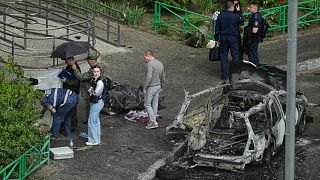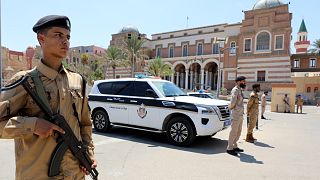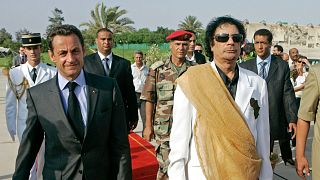Libya
The European Union's high representative Josep Borrell held talks in Liba with the warring sides in a bid to find a solution to end the conflict.
Chaos erupted after the 2011 NATO-backed uprising that toppled and killed longtime ruler Muammar Gaddafi.
Since 2014, the country has been split between the rival factions: the Tripoli based Government of National Accord (GNA) and General Khalifa Hafta, who controls the east.
Both sides are backed by armed groups and foreign governments.
Fayez Sarraj, head of the GNA, announced a cease-fire on 21 August and called for demilitarising the key city of Sirte and the nearby area of Jufra, which would mean the withdrawal of forces of military commander Khalifa Hifter.
Previous efforts to secure lasting cease-fires have stalled.
The two sides also agreed on the need of an "effective" international support to the political solution to Libya's conflict, a statement said.
Hafter's forces launched an offensive in April 2019 trying to capture Tripoli.
But his campaign collapsed in June when the Tripoli-allied militias, with heavy Turkish support, gained the upper hand, driving his forces from the outskirts of the city and other western towns.
The two sides also agreed on the need of an "effective" international support to the political solution to Libya's conflict, a statement said.
But that may prove difficult with countries split on which side they support.
Turkey, Italy and Qatar are among those who side with the GNA.
Russia, Egypt and the United Arab Emirates back General Haftar.











Go to video
Pics of the day: March 13, 2025
02:02
Emotion and power of sport on Day 4 of Special Olympics World Games in Turin
Go to video
Pics of the day: February 20, 2025
01:00
Experts warn of hazards as Mount Etna eruption draws surge of visitors
01:00
Etna in action: spectacular eruption and diverted flights
03:33
Pope Francis hospitalised for respiratory infection